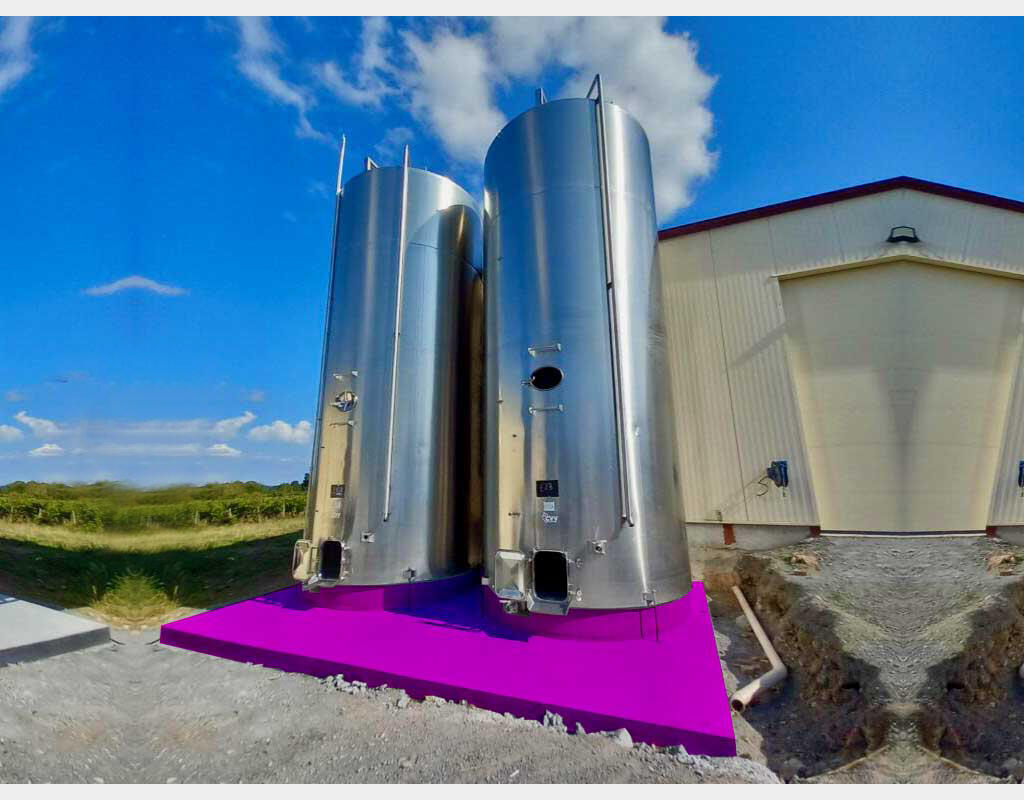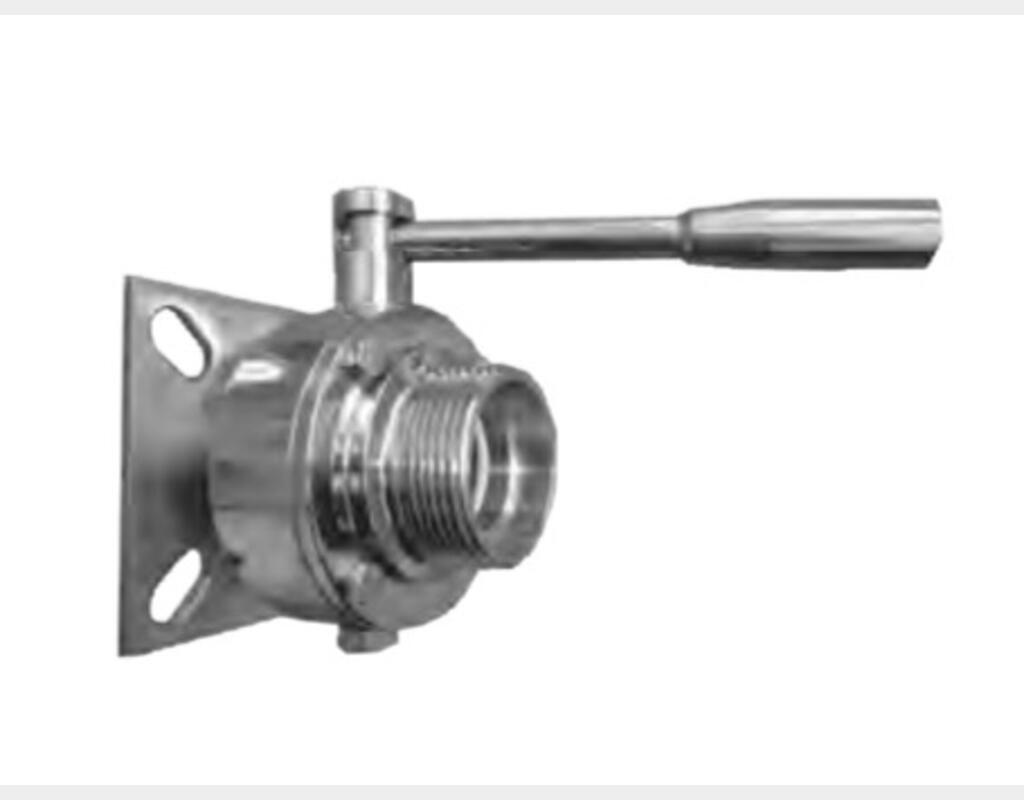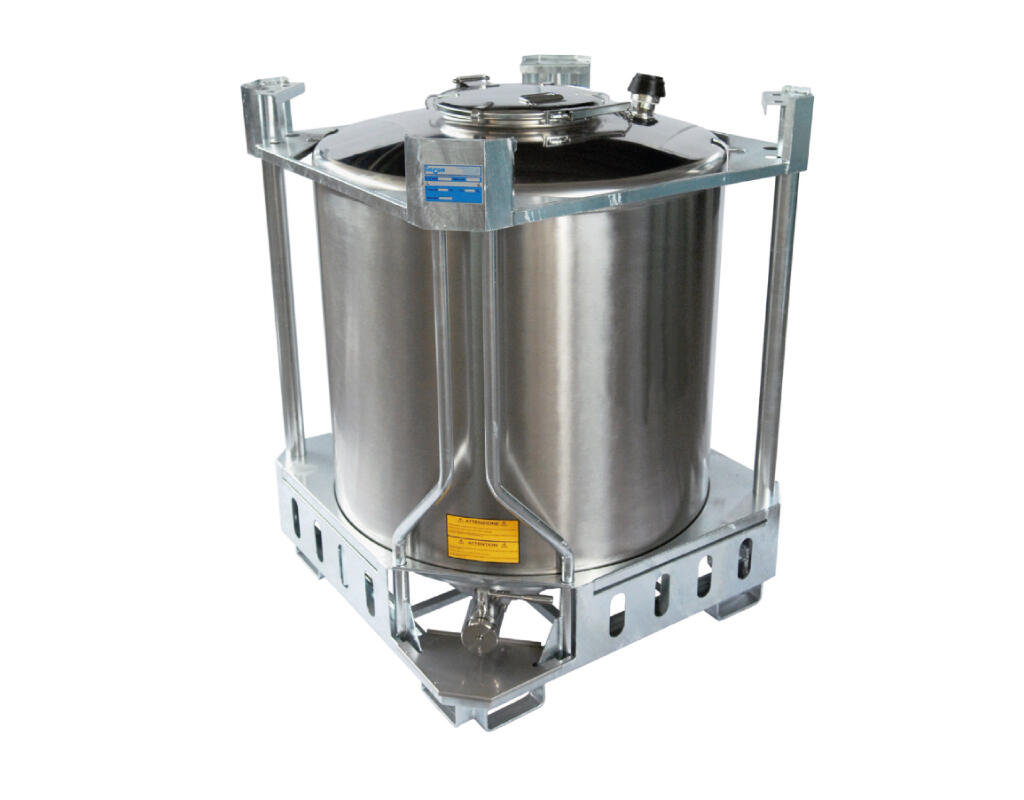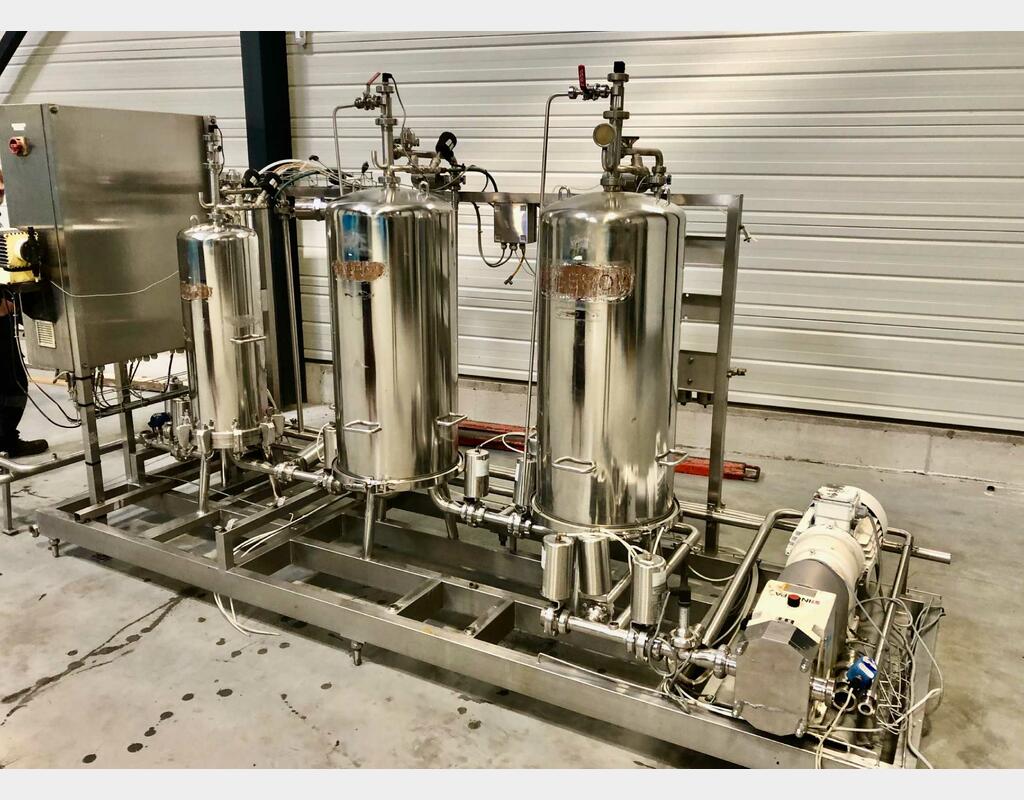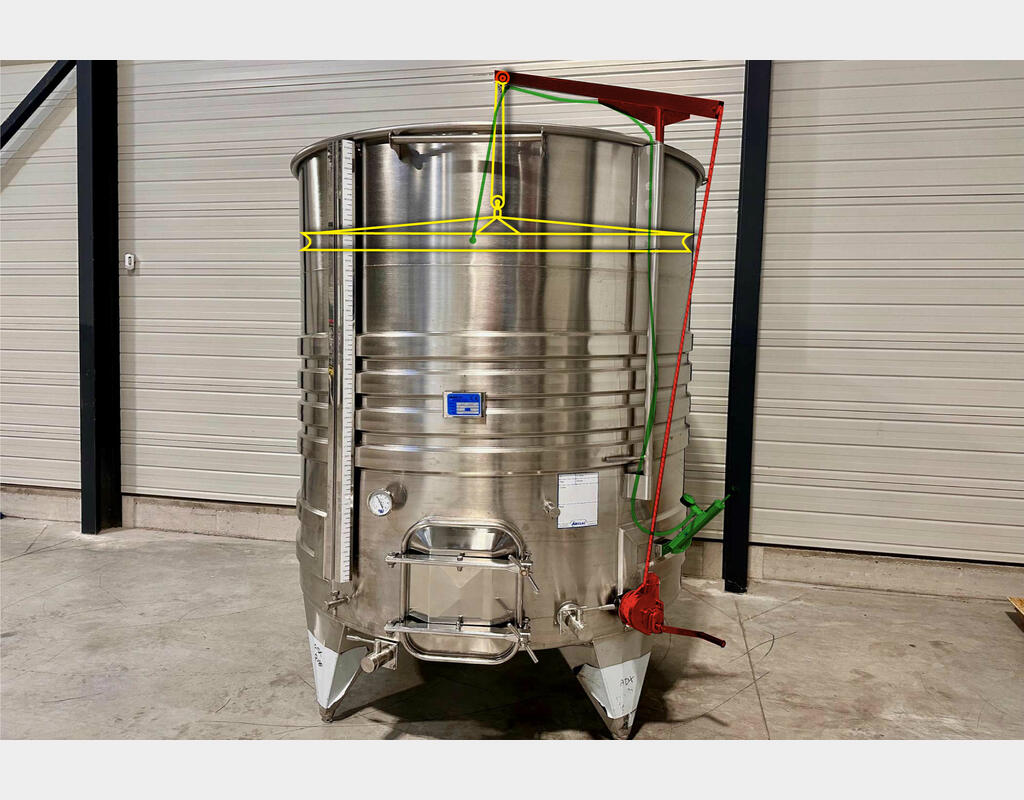Used wine bottling machines : Reliable equipment at lower cost
Wine cappers, rinsers, fillers, corkers and labellers
In a wine sector where competitiveness and the search for sustainable solutions are increasingly important, opting for second-hand wine bottling machines is an economical and responsible strategy. By upgrading tried-and-tested equipment, producers can make substantial savings while reducing their environmental footprint. What's more, these robust, reliable machines are an asset for small and medium-sized operations, offering them high-performance equipment at a lower cost. In this article, you'll discover how these machines, from rinsers to labellers, help to reconcile quality, sustainability and profitability as part of a circular economy serving the wine sector.
The advantages of used wine bottling equipment
The wine industry relies on reliable equipment to guarantee product quality while optimising costs. Second-hand wine bottling equipment is emerging as an attractive alternative for producers looking to combine profitability, sustainability and performance. In this article, we'll explore the reasons why many in the wine industry choose to turn to second-hand bottling machines and how this can benefit your operation.
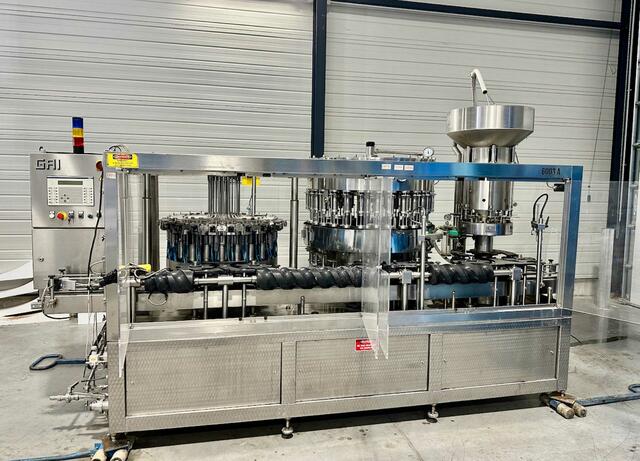 |
Profitability : How buying second-hand equipment cuts costs
For wine producers, the cost of investing in new machinery can be a major obstacle. Opting for second-hand wine bottling machines is an advantageous solution that reduces these costs without sacrificing quality. In fact, this equipment offers comparable performance to new machines, while allowing producers to make substantial savings.
Used wine-making equipment is often carefully overhauled and upgraded, offering an excellent alternative to new machines. For a producer, this means the opportunity to generate higher margins by reducing capital expenditure, while allocating financial resources to other aspects of their business, such as marketing or improving their winemaking processes.
Reliability : Quality standards and durability of wine-making equipment
Wine bottling equipment, even used equipment, is designed to last and to meet high quality standards. Used bottling lines on the market are generally selected and inspected to ensure their reliability. Wine producers know that quality equipment, even second-hand, can withstand years of intensive use without compromising performance.
With quality equipment, such as wine cappers or wine bottle labellers, producers can ensure that their products meet consumer expectations for quality and safety, while limiting the risk of production downtime. This reliability makes pre-owned equipment a wise choice for wine industry players looking to optimise their bottling line without compromising production standards.
Environmental impact: reducing carbon footprint and waste
By opting for pre-owned wine bottling lines, producers are also taking part in an environmentally responsible approach. Reusing equipment rather than buying new helps to limit the sector's carbon footprint by reducing the need for new production and limiting waste. This approach also meets consumers' increasingly high expectations of environmentally friendly products.
By reusing bottling equipment, wineries are playing an active role in reducing industrial waste. Beyond the economic aspect, this commitment to the environment is an asset for brands seeking to promote their environmentally responsible approach to their customers. Using used bottling equipment not only saves money, it also promotes sustainability.
The different types of wine bottling machines
Several types of wine bottling machines are required to ensure efficient and professional bottling. Each of these machines plays a vital role in the quality of the finished product and overall production efficiency. In this section, discover the specifics of key equipment - from cappers and labellers to rinsers, fillers and sealers - and how purchasing used equipment can meet the needs of cost-effective wine production.
→ Discover the used bottling equipment available
Cappers: benefits and models available in the second half of May
Cappers are essential for sealing wine bottles, guaranteeing a hermetic seal and a professional presentation of the product. Used wine cappers are available in a range of models, from manual to semi-automatic, ideal for adapting to different production volumes. Choosing a used capper means you can benefit from reliable performance while reducing costs, without compromising bottling quality.
Used models also offer a range of options, so you can find the capper that best suits your production requirements. Investing in a used capper means you can reduce costs while ensuring the same quality of finish as new equipment.
→ Discover the used cappers available
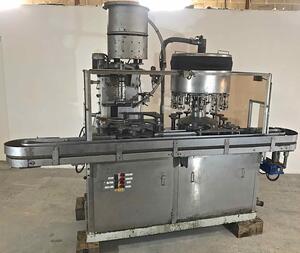
Rinsers : Role and options for cleaning bottles before bottling
Prior to bottling, bottles must be thoroughly cleaned to avoid contamination and ensure quality wine. Used wine bottle washers provide this crucial cleaning process. These used machines offer cost-effective solutions without sacrificing efficiency, with models designed for different production types and volumes.
Choosing a used rinser helps maintain high standards of hygiene, an essential step in wine production. Options include semi-automatic rinsers, which are ideal for small and medium production, ensuring consistent cleaning with each cycle.
→ Discover the used dishwashers available
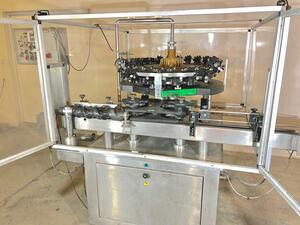
Fillers : How fillers work and when to use them
The filler plays a central role in the bottling process, ensuring that bottles are filled accurately, without loss or alteration to the wine. Second-hand filling machines offer comparable performance to new equipment at a fraction of the price. With semi-automatic and manual options, producers can tailor the equipment to the specific needs of their operation.
Used filling machines allow production output to be managed efficiently without compromising quality, ensuring consistent filling. Whether for intensive use or smaller production runs, used filling machines remain a reliable and cost-effective solution.
→ Discover the used filling machines available
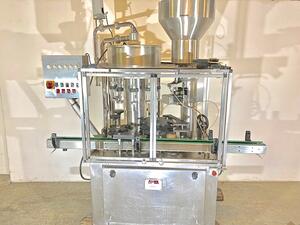
Corkers: Description of corkers and types of closures
The corking machine is essential for the hermetic sealing of bottles in order to preserve the quality and freshness of the wine. Used corkers are equipped with different types of stoppers to adapt to the specific characteristics of the corks used (cork, synthetic, etc.). By choosing a used corker, producers can benefit from a powerful, versatile machine while keeping their budget under control.
Second-hand models usually include options for different types of corks, giving producers valuable flexibility. Used corkers can therefore meet the requirements of any type of wine without requiring a large investment.
→ Discover the used corkers available

Labellers: Importance and configuration of used labellers
Labelling is the final step in the bottling chain and is essential for marketing and brand image. Used labellers allow labels to be applied with precision, ensuring a clean, professional presentation of the final product. Depending on your needs, you'll find used semi-automatic and automatic labellers to suit a range of production sizes.
Investing in a used labeller not only reduces costs, but also helps to maintain a high aesthetic standard for each bottle. Used models often have adaptors to accommodate different label formats, making them versatile and scalable to meet production requirements.
→ Discover the used labellers available
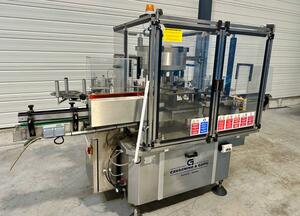
Buying used wine packing equipment
Buying used wine packing equipment is a strategic decision for many wine producers looking to balance profitability and performance. Not only does it help to reduce costs, but it also allows them to find machines that are tailored to the specific needs of their business. In this section, we detail the criteria to consider when selecting a used bottling line, as well as the methods for assessing performance and the maintenance aspects that are essential to ensure the longevity of the equipment.
Criteria for selecting a used bottling line
When purchasing a used bottling line, special attention must be paid to the condition of key components such as pumps, valves and cleaning systems. These elements directly determine the performance and durability of the machine. Careful inspection of these components will reveal any signs of wear or failure that could affect the smooth operation of the line.
For a successful takeover, it is advisable to ensure that the pumps operate smoothly and that the valves, which are often subjected to high pressures, are in good condition. Meanwhile, the cleaning system is essential to ensure that the bottles are hygienically clean before filling. Choosing a bottling line whose components are in good condition reduces the risk of high short-term repair costs, while offering stable productivity.
Performance testing : Methods for checking machine capacity and efficiency
When investing in used wine bottling equipment, it is essential to carry out performance tests to ensure its efficiency. These tests check that the equipment will achieve the expected level of capacity and operate smoothly under different loads. The tests include checking the bottling speed, filling accuracy and regularity of production cycles.
Performance testing is an essential step before buying a used machine. By reproducing real production conditions, the producer can be sure that the equipment will meet the requirements of his operation. It's also a way of identifying any weaknesses in the equipment, so you can make a more informed decision when buying.
Maintenance issues : servicing, repairs and associated costs
A used bottling line requires regular maintenance to ensure its longevity and performance. Maintenance of wine packaging equipment includes regular inspection of components, replacement of worn parts and thorough cleaning. By investing in proactive maintenance, producers can limit production downtime and maintain the quality of their bottling line.
The costs associated with maintenance vary depending on the initial condition of the machine and its level of use. However, by factoring in maintenance costs at the time of purchase, manufacturers can accurately budget for maintenance and reduce unforeseen costs. A well-maintained machine remains a profitable investment, allowing it to be used for longer and maximising its yield.
In short, choosing used wine bottling equipment is much more than a simple economic solution; it's a strategic choice that combines performance and ecology. By investing in this reconditioned equipment, wine producers benefit from reliable machines at a lower cost, while actively participating in a sustainable approach. Whether you're a small winery or a large structure, considering the purchase of used equipment will not only help you meet market demands, but also strengthen your competitiveness and your commitment to the environment. Choose sustainable efficiency and profitability by opting for used bottling equipment and position your company as a responsible player in the wine sector.
✖ Any doubts about the feasibility of your project ?
Don't hesitate to contact an Arsilac manager if you have any questions or would like more information about the types of equipment used in the industry. Find the filling solution that suits your needs.
_
Note : This article is for informational purposes only and does not constitute professional advice. It is recommended that you consult experts and comply with the specific regulations of each industry.
Bottling equipment FAQ
Q : Where can I buy second hand wine bottling lines ?
A : When buying a second-hand bottling line, it's a good idea to turn to a recognised supplier such as Arsilac for its expertise in wine packaging machinery. In addition to quality guarantees, Arsilac also offers advice, which is a major asset when it comes to integrating the equipment effectively into the production line.
Q : How does one choose a second-hand wine bottling line ?
A : The first step is to check the condition of the main components, such as pumps, valves and cleaning systems. These elements play a key role in the performance and reliability of the machine. It is also advisable to carry out performance tests to ensure that the equipment is performing at the level required for production.
Q : What are the advantages of buying used wine bottling lines ?
A : In addition to the financial benefits, the use of used equipment also contributes to environmental sustainability. By reusing equipment, producers reduce the carbon footprint of their operations and limit industrial waste. Finally, used bottling lines are often available in a variety of models, from cappers to labellers, so producers can customise their bottling line to suit their needs.
#embouteillage #vinicole #boucheuse #tireuse #capsuleuse

